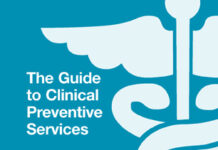Mental Illness Isn’t the Only Reason for Suicide
From The Age: Most public discussion and media portrayals of suicide assume that suicide is solely the result of mental illness such as depression and anxiety....
A Healthier Diet Reduces Depressive Symptoms
The “Mediterranean diet” has been associated with reduced risk of depressive symptoms, and a new study demonstrates that dietary changes may be an effective treatment intervention.
Racism as a Public Health Threat
From Medical Xpress: Racism is a major public health issue that is correlated with physical and mental health problems including depression, high blood pressure, cardiovascular disease, breast...
Long-term Usage of ADHD Drugs Linked to Growth Suppression
Findings suggest that treatment not only fails to reduce the severity of “ADHD” symptoms in adulthood but is associated with decreased height.
Nutrient Supplementation Improves Outcomes for Patients Diagnosed with Schizophrenia
A review article and meta-analysis of 18 articles published in the journal of Psychological Medicine reported effects of vitamin and/or mineral supplements on psychiatric symptoms in people diagnosed with schizophrenia. The study provides evidence of the beneficial effects of taking certain vitamins and minerals for improving symptoms associated with schizophrenia.
Yoga Intervention Effective in Reducing Depressive Symptoms
Researchers find that yoga and controlled breathing reduced symptoms in individuals diagnosed with depression.
Pro-LGBT Policies Reduce Teen Suicide
A study demonstrates a 7% reduction in suicide attempts for teens in states that had legalized same-sex marriage.
Experts Concerned That Depression Screening Will Lead to Overdiagnosis
Behind the U.S. task force recommendation to screen all children and adults for depression.
New Medications Fail to Show Efficacy for Alzheimer’s Disease
Three phase III clinical trials assessing the efficacy of Lundbeck’s investigational drug idalopirdine for Alzheimer’s disease have failed
Quitting Smoking May Help with Depression
A new study suggests that smoking cessation is related to depressive symptom improvement, but that depression may also make it harder to quit.
Antidepressant Use May Increase Risk of Hip Fractures in Older Adults
Study finds antidepressant use is linked to increase in hip fractures in community-dwelling older adults with and without Alzheimer’s disease.
Treating Metabolic Conditions May Resolve Some Depressive Symptoms
New research suggests that treatable metabolic abnormalities underlie some treatment-resistant cases of depression—and treating the metabolic condition has the possibility of dramatically reducing depressive symptoms
Importance of Physical Symptoms in Mental Health Evals
Researchers at Harvard Medical School highlight the need for mental health clinicians to explore the meaning of physical symptoms and pain
What is Holistic Psychiatry?
Holistic psychiatry teaches that within each and every one of us there are great and latent powers, which are beyond the ordinary life. Daily progress in self-development is not the result of accident or chance, rather it comes from a steady practice of working on yourself.
“Their Brains had the Telltale Signs of Alzheimer’s. So why did They Still Have...
Sharon Begley for the STAT examines new research which raises “doubts about conventional approaches to diagnosing and finding treatments for Alzheimer’s.”
Article →
Treating Depression with Exercise and an Internet-Based Intervention
A new study compares exercise, Internet-based cognitive-behavioral therapy (ICBT) and usual care for treating individuals with depression.
Study Finds No Benefit for Testosterone Treatments
Researchers find no benefits for testosterone as a treatment for improving mood, psychological well-being, and cognitive function.
Neurosexism: Study Questions Validity of Gender-based Neuroscientific Results
Neuroscientific results that class humans into two categories, “male” and “female,” tend to reify gender stereotypes by giving them the appearance of objective scientific truth.
Meta-Analysis Finds Exercise Improves Cognition in Individuals with Schizophrenia
A new review, published in Schizophrenia Bulletin, examines the effects of exercise on cognition in individuals diagnosed with 'schizophrenia.' The results of the meta-analysis...
Review Examines Complementary Approaches for Pain Conditions
A review published in Mayo Clinic Proceedings used U.S.-based clinical trial evidence to examine the efficacy of complementary health approaches for chronic pain management....
Not So Rare But Rarely Diagnosed: From Demonic Possession to Anti-NMDA Receptor Encephalitis
Throughout the ages, convulsions, contortions of the body and face, including the tongue, super-human strength, catatonic periods, long periods of wakefulness or sleep, insensitivity to pain, speaking in tongues, and a predilection for self-injurious behaviours have all been offered as physical evidence of possession. The modern day interpretation, however, comes with a plot twist befitting a media spectacle. There is growing consensus in the medical community that many prior accounts of “demonic possession” may have represented original accounts of what is now broadly known as autoimmune encephalitis.
“Tylenol in Pregnancy Tied to Behavior Problems in Children”
For the New York Times’ Well blog, Nicholas Bakalar reports on a new study, in JAMA Pediatrics, that found that using acetaminophen (Tylenol) during...
“Childhood Adversity Hurts Our Mental and Physical Health”
Dr. Jeffrey Brenner, a recipient of a 2013 MacArthur Foundation genius award, wrote: “ ACE Scores should become a vital sign, as important as height, weight,...
Effects of Exercise on Depression Underestimated, Review Finds
A new meta-analysis finds that the large antidepressant effects of exercise may have been underestimated in previous reviews. This latest report, published this month...
Air Pollution Linked to Mental Health Problems in Children
A new study, published in BMJ Open-Access this week, found a significant link between the level of air pollution in a community and the mental health of the children living there. After controlling for socio-economic status and other potential variables, researchers in Sweden discovered a strong association between the concentration of air pollution in a neighborhood and the amount of ‘antipsychotic’ and psychiatric drugs prescribed to children. The link remained strong even at pollution levels well below half of what is considered acceptable by the World Health Organization (WHO).




























